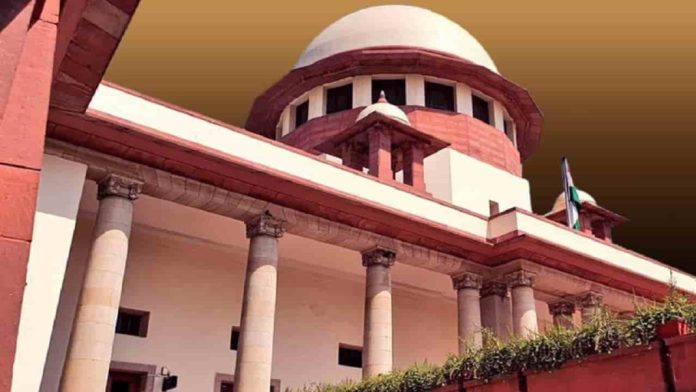The Supreme Court has expressed its strong displeasure over the allegations made by a petitioner regarding the impartiality of an Expert Committee, which was constituted by the Apex Court to examine whether there was any regulatory failure on part of the Securities and Exchange Board of India (SEBI) in relation to the Adani-Hindenburg issue.
The issue came up, while the Bench of Chief Justice of India D.Y. Chandrachud, Justice J.B. Pardiwala and Justice Manoj Misra were hearing a batch of Public Interest Litigations (PILs) seeking a Court-monitored investigation into the allegations made by US-based short-selling firm Hindenburg Research against the Adani group of companies regarding violation of stock market regulations.
The matter pertained to a report published by the short-selling firm Hindenburg Research, which claimed that Gujarat-based industrialist Gautam Adani had inflated its share prices. The publication of this report led to a sharp fall in the share value of various Adani companies, reportedly to the tune of 100 billion dollars.
This was followed by several petitioners approaching the Apex Court, including a plea which alleged that changes to the SEBI Act had provided a ‘shield and an excuse’ for the Adani Group’s regulatory contraventions and market manipulations to remain undetected.
The top court of the country asked SEBI to independently investigate the matter earlier this year. It further constituted an expert committee headed by former Supreme Court judge, Justice (Retired) Abhay Manohar Sapre on March 2 to look into the matter and make suggestions to improve the regulatory framework.
The committee members included OP Bhatt, Justice JP Devadhar (former Bombay HC judge), KV Kamath, Nandan Nilekani and Somashekhar Sundaresan. In its report released in May, the Committee said it did not find any prima facie lapse on part of SEBI in the matter.
One of the petitioners in the case, Anamika Jaiswal, filed an affidavit in September alleging conflict of interest on part of some of the expert committee members, due to their association with Adani group companies.
Advocate Prashant Bhushan, representing the petitioner, submitted on Friday that OP Bhatt was the Chairman of Greenko group, which had associations with Adani group of companies.
Bhushan further questioned the role of Advocate Somashekhar Sundaresan, pointing out that he has appeared for Adani group before various fora, including the SEBI Board.
While terming the allegations made by the petitioner as ‘unfair,’ the CJI told Advocate Prashant Bhushan that such statements should be made with a sense of responsibility.
Addressing Advocate Bhushan, he said Advocate Somasekharan was neither an in-house counsel of the Adani group nor a retainer. Lawyers made appearances in various cases. The CJI pointed out that the appearance made by Advocate Somasekharan in the case was in 2006 or 17 years ago.
Bhushan then stated that he had also been on many SEBI committees.
The CJI responded that being on SEBI committees should not disqualify a lawyer from becoming a judge.
Advocate Bhushan pointed out that Sundaresan’s participation in the financial sector law reform committee was at the behest of the previous government.
The CJI said this did not disqualify him.
Solicitor General of India Tushar Mehta joined the discussion and stated that Sundaresan had in fact been critical of SEBI, suggesting that his involvement should not be perceived as compromising his impartiality.
Noting that the committee members were selected by the court, the SG said that the committee was functioning under the leadership of a retired Supreme Court judge.
The Apex Court then told Bhushan that this was a bit unfair, adding that if questions were raised regarding the committees the lawyers were a part of, then people would stop being in committees appointed by the courts, adding that it needed a more robust analysis on the subject.
Bhushan said that though the application only cited one appearance made by Sundaresan in 2006, he has in fact made many other appearances for the Adani group.
The bench then observed that by this logic, no lawyer who has appeared for an accused should become a High Court judge.
Bhushan clarified that the petitioner filed an affidavit in May about Sundaresan’s conflict but did not consider it significant enough to call for the committee’s reconstitution until learning about OP Bhat’s involvement.
The petitioners maintained that committee members should have disclosed potential conflicts to the court for a transparent decision-making process. After an elaborate hearing, the bench reserved judgement in the matter.
(Case title: Vishal Tiwari vs Union of India & Ors)


